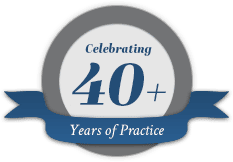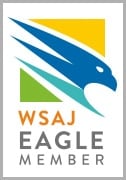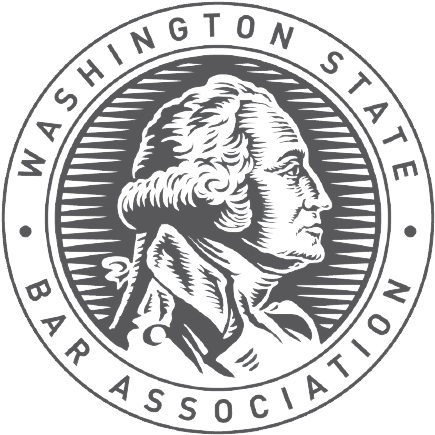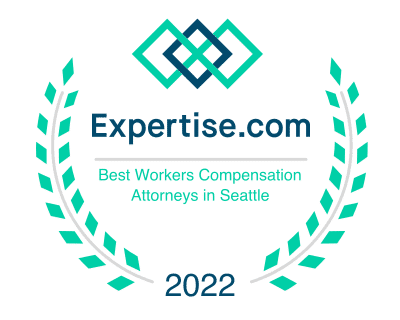Information and Help for Hanford Workers. L&I and EEOICPA
Hanford workers are covered by two very favorable laws. These laws make it much easier and less expensive for Hanford Energy workers to successfully open an L&I occupational disease claim, or an EEOICPA claim.
- The new L&I law provides help for State of Washington L&I claims. Information follows below.
- The EEOCIPA provides federal benefits for Hanford Energy Employees and for their survivors. That information follows later on this page.
- The DOE and Penser have a track record of unfair decisions for the L&I claims of Hanford workers. Don’t put up with unfair treatment if you are a Hanford Worker.
- This page will give you information about the new L&I law for Hanford Workers, how to start and win a Hanford claim, claim benefits, when you can DIY, and when it would be smart to consult a lawyer.
- Hanford Law has been updated in March of 2022 to expand the presumption of certain occupational diseases to now include all active and former Hanford site workers, and not just federal employees. The new law can be found in SB 5890. RCW 51.32.187: Hanford site workers—Prima facie presumption of certain occupational diseases—Rebuttal—Definitions. (wa.gov)
What is This New Law?
This new law creates a legal presumption that certain medical conditions of Hanford workers are occupational diseases. The medical conditions are:
A. respiratory disease;
B. heart problems, experienced within 72 hours of exposure to fumes, toxic substances, or chemicals at the site;
C. certain cancers as specified in the new law; Cancer coverage is different.
D. acute and chronic beryllium disease;
E. neurological disease
How to Get Started With Your Hanford L&I Claim
File an L&I Claim/SIF-2
Hanford L&I Claims are reported and filed on an accident report (SIF-2). This is where you or your doctor report your injury or occupational disease in writing to your employer or to Penser North American (Penser).
First get the L&I accident report forms, from the Workers Compensation Representative (WCR) for your company. The Self-Insured Accident Report (SIF-2) and Physicians Initial Report (PIR) are the forms you need. These are self-insured claims. If you cannot locate your company’s WCR then ask Penser for a claim filing packet.
Next complete the forms and return it to the WCR. Your Workers Compensation Representative should help you with the details of the SIF2 claim form and forward it to Penser. You and the doctor together complete the Physicians Initial Report (PIR). The doctor then mails the PIR to the third-party claims administrator, Penser North America. Be sure both these forms get to Penser. There is no claim until Penser has the forms.
When Penser has the forms, you have filed a claim. You should expect to be contacted by Penser for a statement and requests for information regarding your employment and work activities at Hanford. Be smart about what you say to Penser.
Can I Do It Myself (DIY)
Is This Your Hanford L&I Claim?
If this is your claim, and you are seeing your doctor, and your doctor wants to help you, then you should be able to file the claim without legal help. After your claim is filed, L&I/DOE/Penser will make a decision on the merits of the claim. If they allow the claim, congratulations, you are on your way to being considered for benefits. As the claim progresses keep a close watch on Penser and the DOE. They do have a history of taking advantage of Hanford workers. If the claim is denied or runs into complications get legal help.
Is This an L&I Claim for Another Person?
Are you are wanting to file a claim for another person such as a deceased spouse? You can do that. Consider getting legal advice. Initial legal advice should be free. These are not easy claims and the Department of Energy has a track record of taking advantage of unrepresented workers and widows.
How To Win My Hanford L&I Claim
Elements of a Winning Case
- Be a Hanford worker
- Get specific advice about your particular situation
- Gather employment records which show you were/are a Hanford Worker.
- Gather medical records and opinions as necessary to prove your occupational disease medical condition
- File a claim. See How To Get Started (above).
- Pay close attention to all things about your claim which are mailed to you
- Keep on top of Orders and other notices. Read them and follow up as appropriate. Get advice if necessary
- Do not miss a deadline
Money and Medical Benefits for a Hanford L&I Claim
Medical Treatment for Hanford L&I Claims
A Hanford worker with a successful L&I claim has a right to necessary and proper medical treatment for their occupational disease. To get this medical treatment first get the necessary forms, second see your doctor, and third file your claim.
To receive ongoing medical treatment, you must choose your attending physician from L&I’s list of approved medical examiners. Your attending physician can send you to specialists.
Either of these doctors can refer you out for appropriate medical testing.
Your doctors will send their bills for your treatment to Penser. You should never see a medical bill for your accepted L&I occupational disease.
Medical care continues until your claim closes. A few seriously hurt and legally smart persons get for themselves a lifetime of claim related medical care.
Money Benefits for Hanford L&I Claims
Time loss is a money benefit paid every two weeks. It is a tax free payment of about 60+% of the wages you were making at the time of the injury. Time loss should be paid until you return to work or your claim settles and closes. For more information see: Time Loss Compensation in Washington State
Pension is a money benefit for Hanford workers’ who will never return to any job. It is a lifetime monthly payment of money. If you qualify you can still get a pension even if your employer did not have a pension program. For more information see: Pensions
Permanent Partial Disability Settlement (PPD) is a lump sum paid at claim closure. This is a settlement for impairment to the body or mind of Hanford workers, for the permanent effects of their injury. For more information see: Permanent Partial Disability Settlement
If Your Husband, Wife, or Parent Died Because of an on the job occupational disease you may be eligible for past due and future pension payments. Legal Help for Widows and Survivors
What the L&I Law Doesn’t Do.
This new law doesn’t prove your claim. You have to file and prove your claim. But now you can do it, because the playing field has been leveled. This new law creates a legal presumption which makes it easier to prove your claim.
What is a Legal Presumption?
The legal presumption created by this new law is a procedural rule designed to assist persons when they are proving a claim. As it applies to this new law, the listed diseases and conditions will now be presumed to be work related unless proven otherwise.
Why is this Presumption Helpful?
- As the law was previously written, without a presumption, a Hanford worker had to prove that their medical condition was job related. This required expensive and hard to get medical testimony.
- Under the new law, the worker first shows they have a specified medical condition, and then this medical condition will be presumed to be related to their job. If the employer chooses to fight the claim, the employer will have to prove the medical condition is not job related.
- This presumption applies to the worker during employment, and after employment, for their lifetime.
- This presumption will even apply for the benefit of beneficiaries (spouses and dependent children) after the death of the Hanford worker.
- Said another way this legal presumption is helpful because Hanford workers’ occupational disease claims will now be easier to prove.
What is an Occupational Disease?
An occupational disease is a job related medical condition which typically develops slowly and over time. For example, a tank farm worker who repeatedly breathes chemical vapors, is at risk to develop a neurological disease. That on the job neurological disease is an occupational disease. For a lengthy definition, see occupational disease.
But Wait… There’s More Good News…
- Old occupational disease claims previously denied by order can now be refiled as a new claim and reassessed using this new law. This is a big benefit to those Hanford workers and their widows who had their claim previously denied by order.
- Your Attorney fees might be paid for by your employer. When a determination involving the presumption established in this section is appealed to the board of industrial insurance appeals and the final decision allows the claim of benefits, the board of industrial insurance appeals shall order that all reasonable costs of the appeal, including attorneys’ fees and witness fees, be paid to the worker or his or her beneficiary by the opposing party.
- Statute of Limitations (SOL) is favorable for occupational diseases. The statute of limitations is a time deadline by which a claim must be filed. For occupational diseases, (not injuries), the SOL is 2 years from the date a doctor informs the worker in writing of both the occupational disease and that a claim can be filed. Since that specificity and detail is usually lacking in these matters, the result is that most workers, and their spouses, have at least 2 years and likely more than 2 years, often a lifetime to file an occupational disease claim.
Who is a Hanford Site Worker?
“A United States department of energy Hanford site worker” and “Hanford Site Worker” means any person, including a contractor or subcontractor, who was engaged in the performance of work either directly or indirectly, for the United States, regarding projects and contracts at the Hanford nuclear site and who worked on the site at the 200 east, 200 west, 300 area, environmental restoration disposal facility site, central plateau, or the river corridor locations for at least one eight-hour shift while covered under this title.
Where Can I Find This New Washington State Law?
Why Do Hanford Workers Get a Special L&I Law that Applies Only to Them?
Hanford workers are employed by or ultimately work on behalf of the U.S. Department of Energy. (DOE)
The DOE has repeatedly denied access to information about chemical exposures, resulting in an unfair failure to protect and help these workers. Hanford workers have been doing the secret and dirty work of this nation since the 1940’s, yet they have been rewarded by being effectively shut out of the workers’ compensation system. This is so because proof of an occupational disease claim requires a physician to know and understand the chemicals and toxins involved and connect them to the terrible diseases these workers are contracting. This can’t be done when nobody, not even the DOE knows what the chemicals are, the DOE doesn’t keep adequate track of exposures, and the DOE is self policed and not subject to Washington State L&I regulation.
Is There a Time Deadline to File a Hanford Washington State L&I Claim?
- For injuries there is a short one year SOL
- For occupational diseases, the SOL is longer and may never begin to run. This means the occupationally exposed worker or their spouse can often file a claim even many years after their exposure or the death.
- Don’t quit on this. File a claim.
Do I Need to Hire a Hanford Personal Injury Lawyer?
- I Want to DIY
- There is enough information to get you started is here in this website
- Read / Think / Act / Don’t miss a deadline
- I Want Legal Advice from a Hanford Accident Lawyer
- If you are going to get legal assistance than do it now
- You can get legal help and guidance from start to finish for the same fee as last minute help.
- Contingent legal fees mean you pay your lawyer only if you win
- Contact Us
Cancer Coverage Has Special Rules For Hanford Workers
The new law applies to all cancer claims. However the presumption part of the law only applies to cancer if a qualifying medical exam was previously given.
- The presumption for the cancer portion of the new law has a special requirement. The cancer presumption only applies to a worker who were given a qualifying medical examination upon becoming a Hanford site worker, which examination showed no evidence of cancer. If so, then the presumption applies to the cancers listed below.
Which cancers are covered under the new presumption?
- leukemia
- primary or secondary lung cancer, including bronchi and trachea, sarcoma of the lung,
other than in situ lung cancer discovered during or after a postmortem examination,
but not including mesothelioma or pleura cancer; - primary or secondary bone cancer (including specific forms listed in the bill);
- primary or secondary renal cancer;
- lymphomas, other than Hodgkin’s disease;
- Waldenstrom’s macroglobulinemia and mycosis fungoides; and
- primary cancer of the:
- thyroid;
- male or female breast;
- esophagus;
- stomach;
- pharynx;
- small intestine;
- pancreas;
- bile ducts;
- gall bladder;
- salivary gland;
- urinary bladder;
- brain (with certain limitations);
- colon;
- ovary; and
- liver (with certain limitations).
What if there was no qualifying medical exam, or what if I have a cancer not on this list?
You can still file or refile an occupational disease claim. Your claim will be more of a challenge because the helpful legal presumption will not apply.
EEOICPA – The Federal Energy Employees Occupational Illness Program Act
What is the Hanford Energy Worker Program?
This is a federal workers compensation program for federal employees, contractors, surviving spouses, and others. This is different from and in addition to Washington State L&I Claim.
Benefits
The EEOICPA provides benefits to persons with a diagnosed work related health condition who were employees, contractors, or survivors of there of who worked at a Department of Energy covered facility
employee, contractors, and their survivors.
There are two primary benefits under the EEOICPA, the following provides a short explanation of the benefit.
- Part B of EEOICPA provides compensation for workers, or their survivors, with radiation induced cancers, beryllium disease or silicosis. Claimants whose claims are approved will receive a lump-sum payment of $150,000 and medical benefits for the covered illness. Some claimants paid under Part B will also receive benefits under Part E.
- Part E of EEOICPA compensates DOE contractor or subcontractor workers for all occupationally induced illnesses caused by any toxic substance. Claimants with approved claims can receive compensation for lost wages and impairment of up to $250,000 plus medical benefits for the covered illness. Part E used to be known as Part D. Originally Part D was managed by Department of Energy (DOE). In 2004 Department of Labor (DOL) took over and now manages Part E claims.
How to Apply for EEOICPA Benefits
How to file a Claim for Employee Benefits.
- Complete the application form titled, “Employee Claim for Benefits under the EEOICPA” (form EE-1)
- Complete the form titled, “Employment History” (form EE-3)
- Include any copies of supporting medical and employment documentation along with your application
- You have two options to submit your claim form. Submit the form by mail or with one of the Resource Centers.
How to file a Claim for Survivor Benefits.
- Complete the application form titled, “Survivor Claim for Benefits under the EEOICPA” (form EE-2)
- Complete the form titled, “Employment History” (form EE-3)
- Include any copies of supporting medical and employment documentation along with your application
- You have two options to submit your claim form. Submit the form by mail or with one of the Resource Centers.
Important Legal Definitions
Should I Do This?
- What? Are you kidding? Of course, you should. This could be the answer to your prayers for medical and financial help. There have been too many years of suffering. Hanford Workers and their families have been mistreated and ignored for years. There is a new pair of laws that will help alleviate that suffering. You owe it to yourself to do this.
My Husband or Wife Died Because of Working at Hanford. Will These New Laws Help Me?
- L&I law for many years has allowed a spouse to file an application for compensation even after the death of the worker RCW 51.28.025. For injuries there is a short one year SOL . However for occupational diseases, the SOL is longer and may never begin to run. This means the spouse can often file a claim even many years after their husband or wife’s death.
- In addition this new law will further help spouses. It allows the filing of a new claim for claims previously denied by order.
- The benefits of a successful application can be quite generous. If you have a claim on behalf of a spouse, then file it. If you want legal help, then get it. Contact Us.









